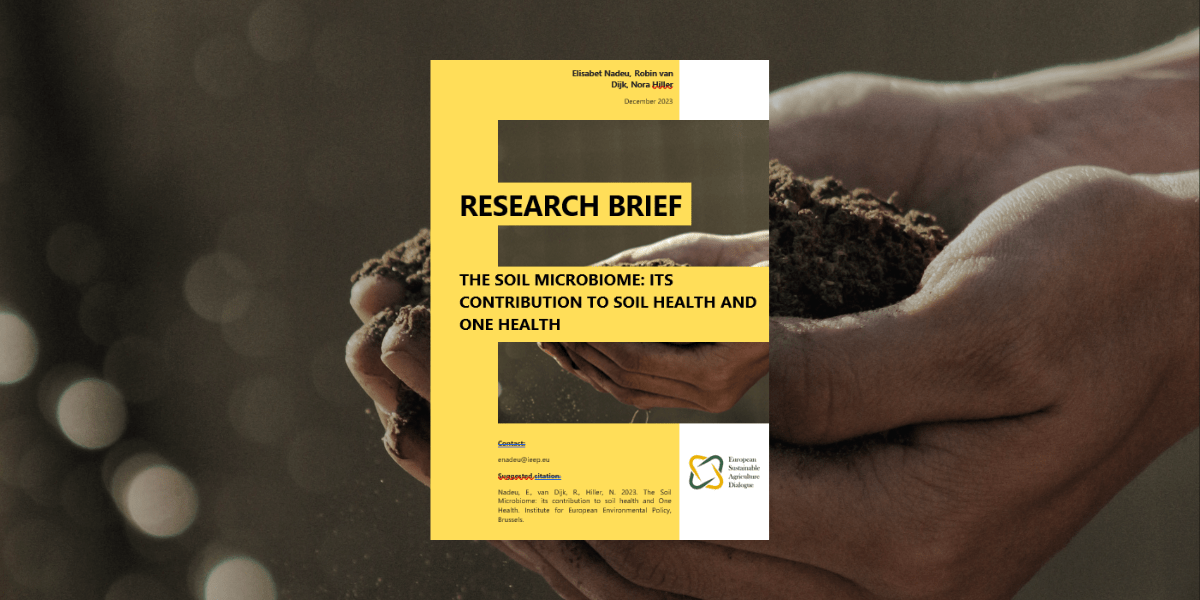Authors: Elisabet Nadeu, Robin van Dijk, Nora Hiller
Undergoing research is showing the importance of the soil microbiome for healthy functioning soils and ecosystems as well as for humans and animal health. This brief explores current knowledge on the soil microbiome, its links to soil functions and the beneficial or harmful effect of agricultural practices on soil health. It also provides recommendations for carrying out future research and innovation.
Soils provide vital ecosystem services including biomass production, biodiversity conservation, filtering drinking water and pest suppression. Although not widely recognised by the larger public, societies benefit from these ecosystem services, particularly for the agricultural sector.
The microbiome (the community of microbes and the structures and substances they generate) plays a crucial role in enabling soil functions in agricultural production. The main soil functions with microbial intervention which support agricultural production are carbon dynamics (decomposition and synthesis of organic matter), nutrient cycling (decomposition, transformation, nitrogen fixation and plant nutrient uptake), soil structure and maintenance (particle aggregation and transport), and biological population regulation (pest and disease control).
Agricultural management practices alter the soil and impact its microbial communities. While some practices can negatively affect the soil microbiome, others can increase beneficial microbes’ diversity, composition, and abundance. This brief provides an overview of practices grouped under six headings: physical soil disturbance; crop diversification; synthetic inputs; biocontrol; organic fertilisers; and direct microbial inoculation. The brief concludes that many of the benefits remain context-dependent, and research and field implementation is needed to elucidate the links between the soil microbiome, soil functions, and plant and soil health.
Understanding the most effective strategies and tailoring these to each context could contribute to meeting the European Union’s Green Deal’s objectives (linked to nutrient and pesticide use), inform soil and agricultural policies, and overall enhance the agricultural sector’s capacity to mitigate and adapt to climate change.
Four main areas for further research are identified to increase our knowledge of the soil microbiome and support a transition towards a more sustainable and resilient agriculture:
- Characterisation of the soil microbiome and development of standardised metrics,
- Improved capacity to map, model and predict the soil microbiome,
- Research into farming practices that can enhance the soil microbiome and its benefits (plant diversity, organic fertilisers, biocontrol)
- Elucidating the role of the soil microbiome in the One Health approach
The research brief can be read here: link
The European Sustainable Agriculture Dialogue (ESAD) is a multi-stakeholder platform created in 2019 that brings together various actors from across society – including industry, civil society, universities, and research centres – to discuss key topics, exchange views and standpoints, and recommend research needs to achieve sustainable agriculture.
The brief was developed in consultation with ESAD members and the authors took their inputs into account in the drafting process. The paper does not reflect the views and opinions of single ESAD members. As such, their contribution is not to be interpreted as an endorsement of the final paper.
Photo by Gabriel Jimenez on Unsplash


